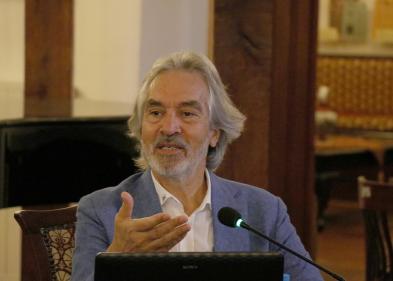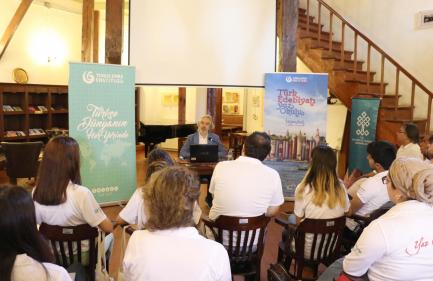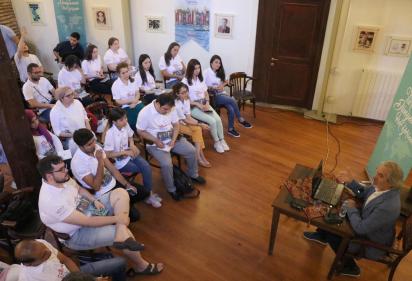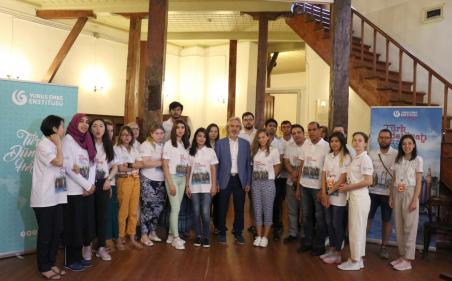Beauty of Civilization Layers as Reflected in Literature
Writer and poet Dr. İskender Pala has described all diversity in our literature to the participants of the Turkish Literature Summer School.
Attending the seminar entitled "Poet, Poem and City," Prof. Dr. Pala has delivered a lecture entitled "Poetry of Turkish: Gazel, Koşma and İlahi" at Ahmet Hamdi Tanpınar Museum.
Pala explained that there are several interrelated layers in the literary pasts of all nations and people compose poetry in three different styles.
"I like to liken Turkish poetry to a rose. Gazel is like a rose which is grown in private gardens. Koşma is a rose that grows in the country. And ilahi is the rose which is domesticated so that it can be transferred from the country to the private gardens and vice versa. In other words, one of them is the folk poetry. Folk poets are completely free, and without going through any formal training or education [on literature], they grow roses and case them in the form of poems. The other group of poets receives education and work hard to develop aesthetic values. This is the gazel and it is noble. There is also the third type: some members of the uneducated or educated group create an intermediate form. This is the tekke or Sufi lodge. We called it irfan or intuitive knowledge," he said.
Pala underlined that the folk, divan and tekke poets come from the same river and the divan, Sufi and folk literature is part of the same civilization heritage. "It is wrongly assumed that there is a fragmented literary understanding in Turkey. No, it is a whole, a civilization, and beauty of civilization layers reflected in literature," he said.








